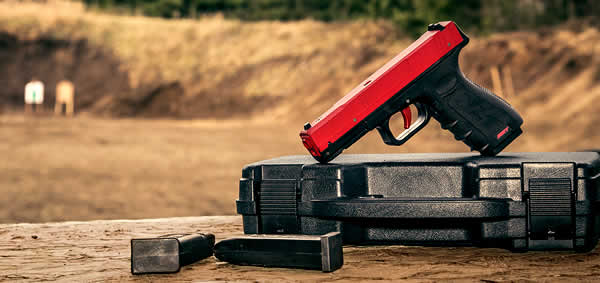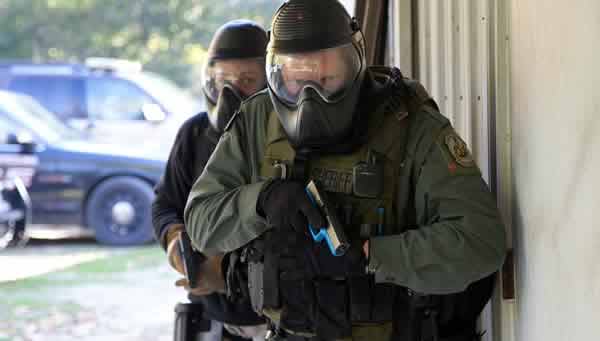Training vs Qualifications
Face it, you are not good enough! If you are still reading this it means you are a person that I want to talk to. Let me explain: Consider top level Olympic athletes. How often do you think Michael Phelps looks at himself in the mirror and thinks he is good enough for his next race? How many times does Tiger Woods, Serena Williams, or any other top level star rest on their laurels?
On the flip side, Phelps doesn’t train by kicking around the kiddie pool either. What I am say is the instant you look at your fighting skills and say “I am ready”… you just lost. The instant we think “I am ready”, we ramp down our training.
We don’t push as hard. When your groups are acceptable to you, you don’t continue to improve. What does qualification mean? Well it means someone met a standard, standards can vary dramatically depending on who created them and what the budget is. Yes, budgets of all things help define standards.

When you think of qualification as it applies to firearms it normally it means that there is some sort of score involved, as well as time limits and conditions. The conditions, number of shots sequence etc are very defined and spelled out in detail.
For example, 25 years ago when I was qualifying for my job as a military police officer, we had to do such things as wait for the buzzer then draw and fire two shots in six seconds sort of thing. There were reloads thrown in and even a barricade to work around.
We still knew exactly what was expected, exactly how to do it and how many hits we needed to pass. For an entire week of my Academy we practiced nothing but how to pass the test to be qualified. At the end I received a passing score…yay, I passed the qualification, but I was still in no way or form ready to get into a gunfight.
This kind of “qualification” is not limited to just military police officers. Police, corrections, private security, it is all based on a passable standard… for the masses. How do you get EVERYONE through qualification?…you make it easy!
If a qualification standard is set too high then you limit the amount of people capable of doing the job. There is an age old mantra in the gun world when it comes to training vs qualification:
“Institutionalized inertia hampers progress (Wilson, 2018)” Institutionalized inertia refers to the fact that organizations are very slow to change how they do things. Logic being that if it worked yesterday, then why won’t it work tomorrow?
Think of qualification as a pipeline where untrained recruits go into the pipe and a “qualified” gun carrier exits. Failures in the standard slow down the entire process with re-shoots and remedial training.
Now think of the qualification standard for a Florida Concealed Weapons or Firearms License. It is simply demonstrate safety and proficiency. My own qualification years ago was a 22 lr round fired into a bucket of water without hurting myself or anyone else. Ask yourself the question, how comfortable do you actually feel standing next to someone on the range that the only proof of competency that qualified them to carry a firearm, was firing one round into a bucket of water?
The qualification standards that we here at FFT use are FAR more stringent than the State requirements and yes we DO refuse certificates to those that cannot pass our CWP qual.
Many civilian schools have qualification standards that you must pass to move on. I attended such a school earlier on this year. Every day for a week the only shooting we performed was in preparation for the test…. At the end of the course, the only new skill we learned was the ones required to complete the test.
What I did get however was a score that in the end, is the final point of qualification. Scores attached to a standard are defensible in a courtroom be it a civilian or a police officer, BUT scores do not keep you alive in a real world, violent, visceral, terrifying fight. Some firearms training schools require you to pass a test and get a “qualification” score before you can move up to the next level.
Check out these Cool Gun Safes Click HERE to Check it out.

I know people who have taken very expensive courses over and over again trying to pass their qualification standard. I asked, “What does this qualification get you?” The reply was we can come back and go to level 2. I answered “You have to pay more money to get good enough to give them even more money?” Hmm…something to think about.
Interestingly other than the CWFL qualification class, you will find very few actual scored standards with us (FFT). In one of our all day training courses, we will go through over 500 rounds at a minimum and the only standard we care about is that you are open to try learning something new. We want you to learn about your own skillsets, where you are how to improve, what to work on and then leave a little better with the gun you brought with you along with skills to practice.

So what is training? Training is stepping outside of what is comfortable, to be taught a skill that you do not know, to have a teacher or instructor TEACH or INSTRUCT you in something new, or something you are struggling with. Practice is recreating those skills learned in training and repeating them over and over again. When we train we have an expert, coach, and mentor to demonstrate specific skill sets and have us recreate them under skilled supervision, and then when ready do so again given the associated stimulus and even stress.
The best firearms training you can do is the one where at the end you are asked to determine for yourself the skills necessary to perform the tasks. For example, here at FFT, during most of our advanced classes and after a full day of skills development, we present you with shoot and no shoot targets in a given scenario.
The student has to negotiate the scenario without previously knowing where the targets are, which ones are ok to shoot, which ones are not to be shot, what order to shoot them in, or how many rounds each target needs. They have to finger it out, use the skills taught and get the job done as soon as the blindfold is removed.
Quite often students completely shut down, going into stimulus overload and get so overwhelmed the self-induced stress… that they cannot think clearly enough to engage. Many just stop and ask for a time out, or a restart… Now imagine this same event but, it’s not in a controlled safe environment at the range, it is a parking lot with multiple actual assailants mixed in with multiple innocent bystanders.
How are they going to do? The problem with real training is that it is messy. When moving, shooting, communicating, decision making and pushing the limits of your individual skill, your target quite often does not look like something we are proud of or what to share on Facebook. In fact, if you fire an intensive stressful series of drills and have what would be considered a perfect group, it really means you held back, gamed the drill or didn’t push yourself.
So let’s look at a qualification example and compare them to your own experiences. A rifle qualification we helped someone with a few months ago consisted of 30 rounds at 50 yards. 10 rounds standing, 10 rounds kneeling, and 10 rounds prone. Only 18 rounds out of 30 were required to be a on a full sized target before they could carry the rifle on duty. Their life is being protected with a slightly better than 50 percent accuracy rate. For handgun many police agencies for 40 rounds once a year most of which is between 3-5 yards and need a 32/40 to pass. Other agencies make it a bit harder extending out the distance but have specifications like must pass twice in a row or 3/6 times to meet the standard.
But in general, it’s a case of, qualification to lowest cost….which ultimately means lowest standard!
Fortunately not all is lost in the battle of score vs skill. Sgt Paul Wood from the Ft. Collins Colorado Police Department has published some great findings on the subject. It is his belief that agencies are putting too much concern on scores and not enough on training. Court cases require that departments train their officers, not shoot for score (Wood, 2018).

It is his belief that agencies have a legal obligation to train their officers rather than just shoot for score and is able to cite multiple court cases in his article that support his opinion. He believes that agencies should find a medium between qualification standards and training. If only a certain amount of rounds and time are allowed per officer per year cut the standard that gets recorded and up the training. He also recommends that officers attend outside training on their own, but cautions that not all outside schools are the same.
So what does all this mean? If you need a set standard that must be passed in order to do a job, pass the test and move on. A barely passing and a perfect score mean very little in the grand scheme of things compared to actual REALISTIC TRAINING.
The attacker with the knife trying to end your life does not care about your scorecard! Get out of the kiddie pool, get off the square range and train like you are not good enough.
An unapologetic admission that you are not good enough!
By Brad Axsom
Senior instructor with Florida Firearms Training



